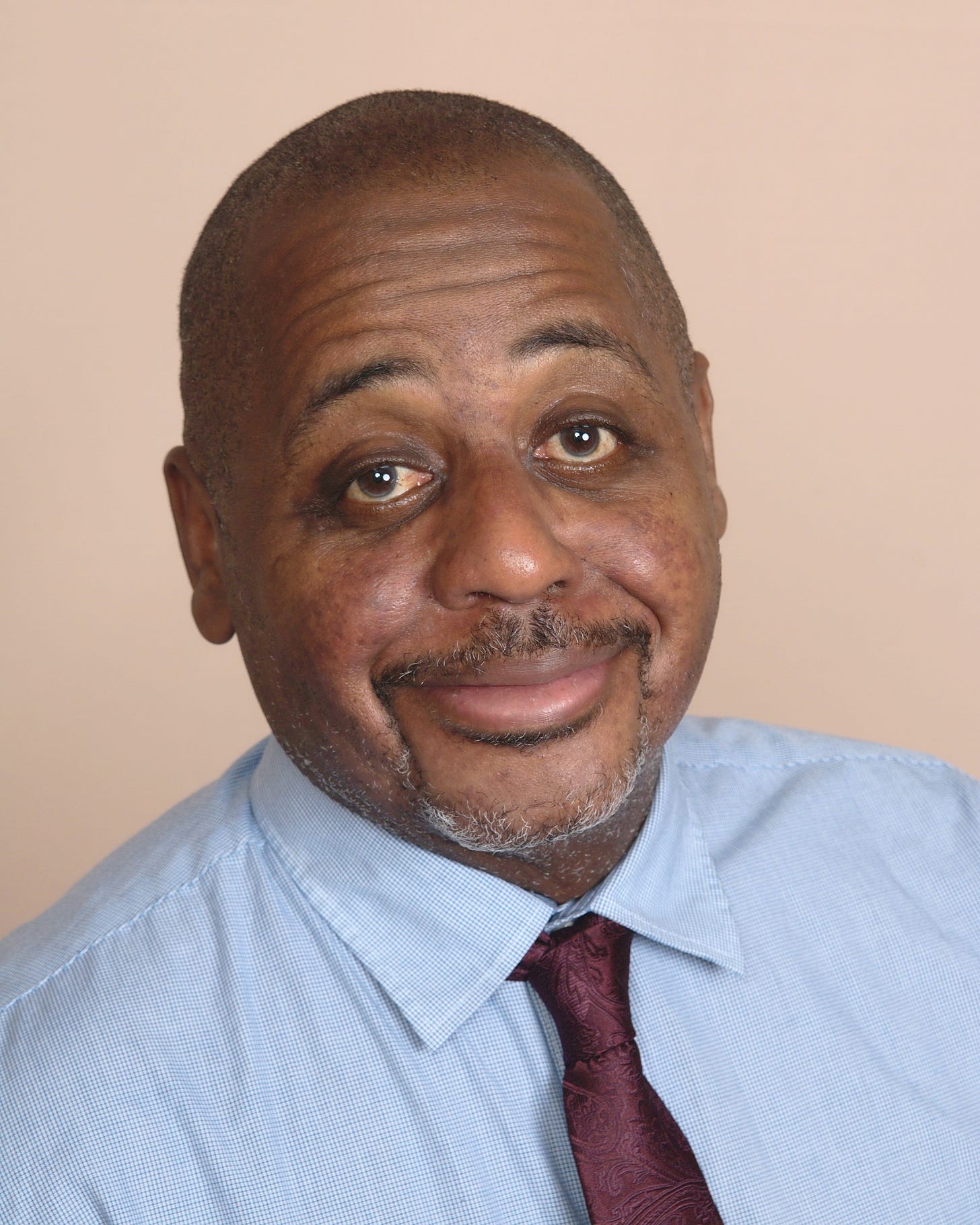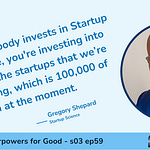Devin: Bill, what is your superpower?
Bill: I think it’s, you know, really being able to to have a vision. But I think a lot of people have vision, but really being able to stay on task because I tell you this has been a really up and down process. You know, when I talk about crowdfunding for the culture, it’s not as though crowdfunding for the Black community is different. But when I say that I am talking about someone in the Black community who has really tried to start a business and tried to find funding, I really understand what that is like. But really being able to stay focused, to stay on target and to really be passionate about what it is that I’m doing because there were a lot of really lean days, a lot of days when my family said, “Hey, man, maybe you need to get a job.” But being able to stay focused and that focus came from a passion because had it not been for that passion, for what I’m doing, I would have stopped, and I would have done something else. So, I think that that that is really about being focused and kind of being driven. You know, I grew up in a home and it was just my father and myself, and he was much older than me. He came from that greatest generation. He was in World War Two and he wasn’t a real nuanced guy. Right was either black or white, and he used to say there are only two kinds of people in the world: talkers and doers. It doesn’t take long to figure out which category you fall into. So, with that kind of home training, I am always trying to get something accomplished every day.
Bill Huston, founder and CEO of Crowd Max Publishing, advocates for crowdfunding as a wealth-building tool for African American and other underserved communities. He also consults with entrepreneurs and real estate developers in the communities he serves to help them access capital via crowdfunding.
That Black communities are not getting their fair share of capital from traditional sources is a well-established fact. Bill describes the data as “clear and consistent.” African American women get less than 1 percent of venture capital. And it isn’t just venture capital that isn’t allocated to Black-owned businesses. Only 4 percent of SBA loans (bank loans guaranteed by the Federal Small Business Administration) go to Black entrepreneurs. Less than 2 percent of PPP funding during the pandemic went to Black-owned businesses.
Bill acknowledges that many businesses in the African American community don’t qualify for these traditional sources of capital. He notes that because of a vast wealth gap between the community and the rest of America, Black entrepreneurs can’t raise as much money in a friends-and-family round—typically the first round of funding for a startup. As a result, such businesses are less likely to meet the requirements of traditional formal capital.
For Bill, crowdfunding plays a dual role. On the one hand, it helps create businesses in the community that will employ people and grows wealth and success for entrepreneurs. It can solve the problem of access to that critical initial capital. On the other hand, members of the community who invest can participate in that wealth creation. Everyone benefits.
There is a natural, positive cycle involved in crowdfunding. Your investors are likely to be or become customers—and vice versa.
Concerned that when people in the larger community invest in black-owned businesses, we may be taking that opportunity from community members, I asked Bill how he recommends we approach the opportunity.
His answer is clear. Members of the larger community need to be intentional about investing in and buying from Black-owned businesses. He suggests allocating a portion of your spending each month to be used specifically at a Black-owned enterprise.
The U.S. Chamber of Commerce lists nine directories of Black-owned businesses you can use to do what Bill suggests.
Bill is successful, he says, because of his superpower: focus.
How to Develop Focus As a Superpower
Focus and the ability to stay on task even when the job isn’t fun or exciting help Bill make a big difference in the communities he serves.
Bill identifies five factors that contribute to his focus.
Prepare: Luck is a factor in all success. Bill acknowledges that is true for him as well. He notes, however, that when luck dishes up an opportunity, prior preparation is required. If you haven’t prepared for the opportunity, it isn’t an opportunity because you can’t take advantage of it. Bill sees preparation as a critical part of focus.
Find Your Purpose: Bill says you’ve got to find your purpose, your passion, your why. Even if it sounds cliche, it is a critical step to creating focus. “They say, if you do what you love to do, then then it’s not work. That has been a reality in my life.” He uses his sense of purpose to create a vision for what he’s doing and daily to-do lists.
Define Your Mission: “You have to be you have to be very definite about what it is that you want to do,” Bill says. That clarity strengthens your focus and allows you to avoid distractions.
Be Determined: “You have to be determined to make sure that you do it,” he adds. That commitment is part of Bill’s formula for being able to stick it out when the going gets tough.
Build Self-Discipline: Bill acknowledges there are times when he wants to watch Netflix. “I want to watch it, but I know that I am not going to get done what needs to get done on that particular day,” so he keeps going. “Mental toughness is being able to do what needs to be done and not what you want to do.”
Bill’s advice can help you develop greater focus, allowing you to accomplish more. Perhaps this can be your superpower. If a lack of focus limits your success, consider building enough to remove the limitation and allow your other superpowers to lift you to a more significant impact.













